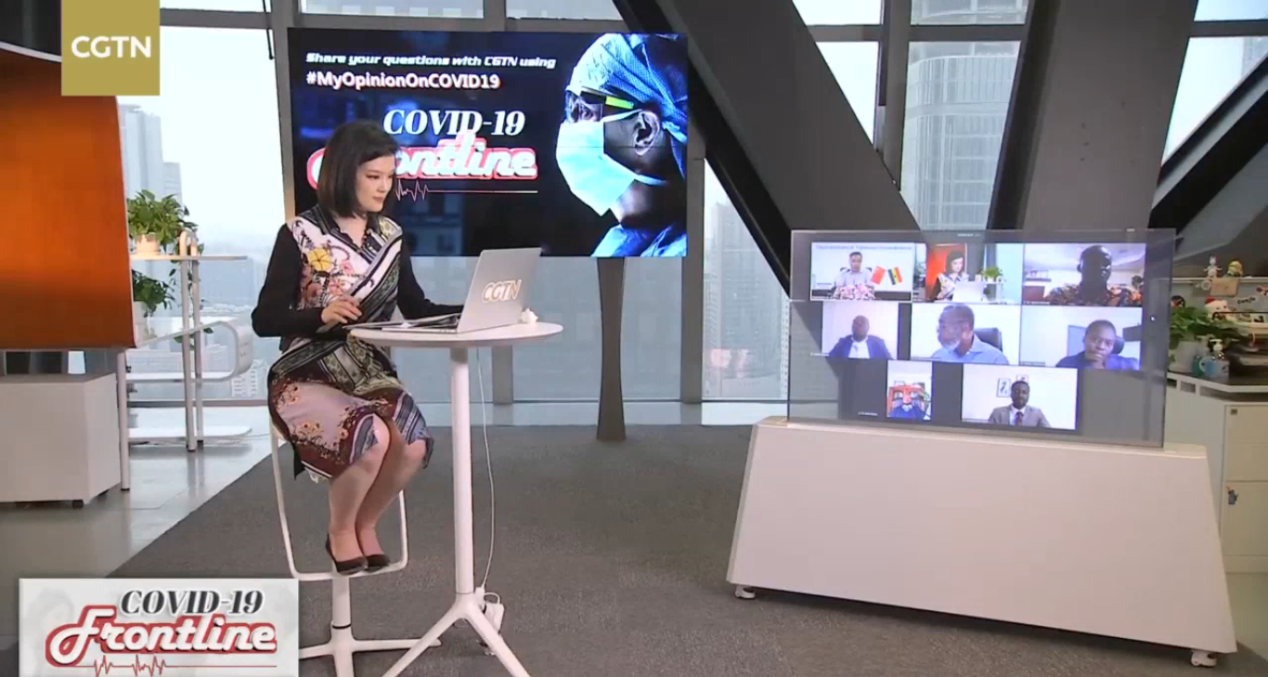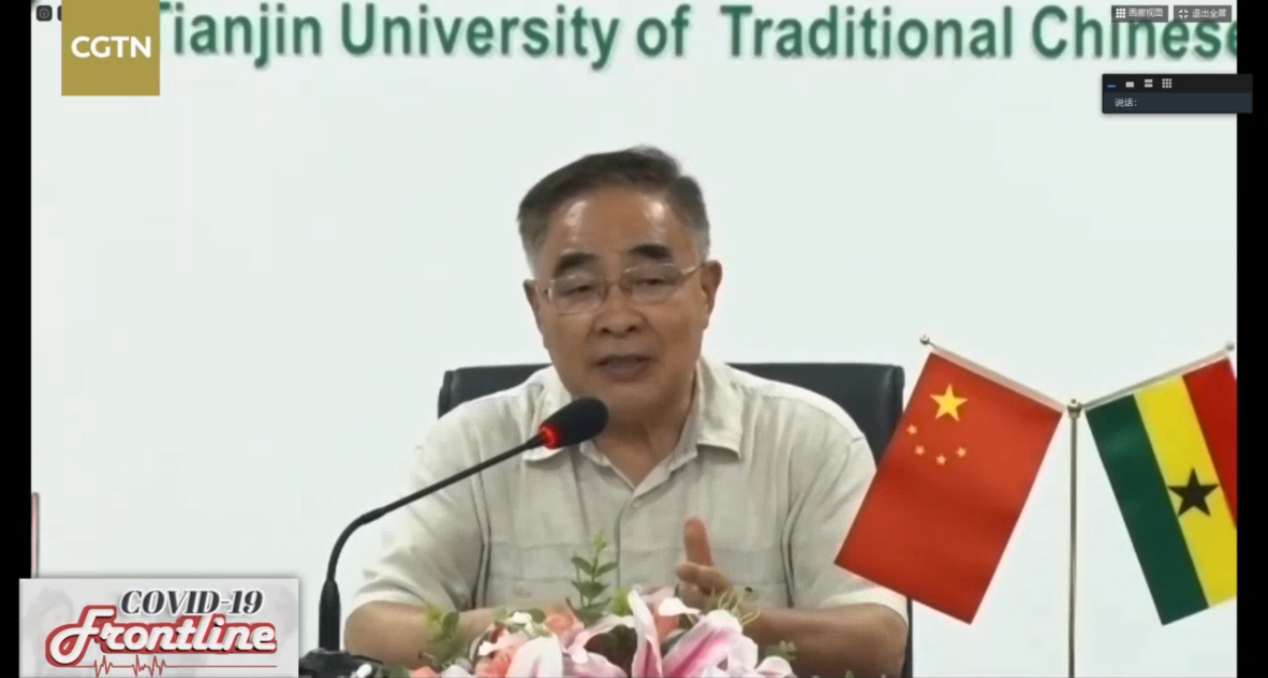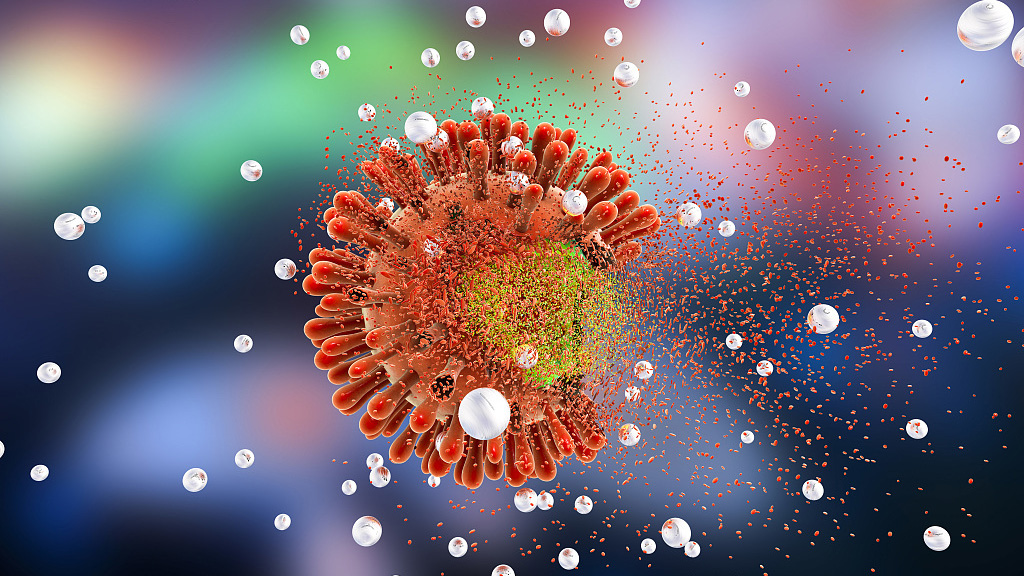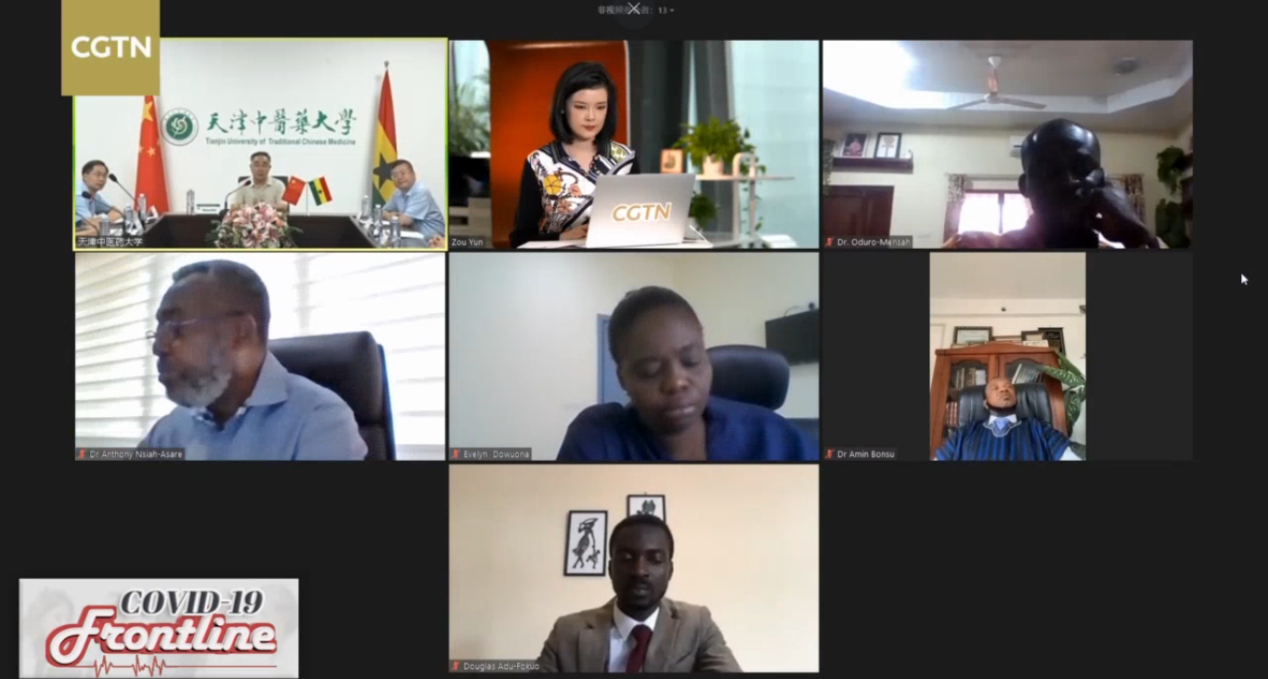Editor's note: On March 12, 2020, the World Health Organization (WHO) declared COVID-19 a pandemic, and as of Thursday (July 9), about 200 countries and regions have confirmed over 11,669,000 cases, according to the WHO. On CGTN's live program "COVID-19 Frontline," we invited workers and experts from China and other parts of the world to share their experiences and take questions from social media, in the hope of providing more information for those who are battling against the pandemic.
In the latest episode of CGTN's live stream program "COVID-19 Frontline" held on Wednesday, CGTN invited Zhang Boli, one of the leading medical experts in China's COVID-19 fight. His team shared their experience treating COVID-19 with a combination of traditional Chinese medicine (TCM) and Western medicine with their Ghana counterparts.
Live: Zhang Boli and his team share COVID-19 experiences with Ghana counterparts
Zhang is an academician of the Chinese Academy of Engineering and president of Tianjin University of Traditional Chinese Medicine. He helped set up the only TCM makeshift hospital in Wuhan, which played a big role in preventing mild symptoms from turning severe. He said for severe and critically ill patients, the combined treatment of TCM and Western medicine has achieved remarkable results and reduced the fatality rate. TCM can also improve the immune function. Therefore, the use of TCM has provided valuable experience to fight the disease.
Anthony Nsiah-Asare, Ghanaian presidential advisor on health, said the first COVID-19 case in Ghana was seen on March 12. Since then, the country has made the control of COVID-19 a national strategic goal. By July 4, around 32,000 people have been tested and 21,000 COVID-19 cases have been confirmed.

CGTN's live stream program "COVID-19 Frontline" held on Wednesday. / CGTN
CGTN's live stream program "COVID-19 Frontline" held on Wednesday. / CGTN
Nsiah-Asare explains the COVID-19 epidemic in Ghana is not quite the same as the situation in Asia and other countries. In Ghana, the majority of COVID-19 patients are asymptomatic. So far there are more than 600 critically ill patients in Ghana. Based on current data, the mortality ratio is very low for severe patients in the country.
Chinese medicines that can treat COVID-19 effectively
Nsiah-Asare asked about whether there are internationally recognized Chinese medicines that are effective against COVID-19, to which Zhang answered that a liquid herbal formula named Huoxiang Zhengqi is quite effective. The drug has been patented in China and included in the Pharmacopoeia of the country. It has been used in China for nearly 200 years. Zhang laments the drug has not been recognized internationally.
Another medicine is Lianhua Qingwen which has been proven to be effective in treating COVID-19 patients by multiple evidence-based evaluations. Some countries have been using the medicine, said Zhang, noting the feedback has been quite positive.
02:51

Has the novel coronavirus mutated?
Dr. Regina Appiah-Opong from Ghana asked about whether the novel coronavirus has mutated and whether the virus is still the same as when it was first discovered.
Zhang noted the novel coronavirus has mutated. Take the variant D614G for instance, it only accounted for less than 10 percent of the disease in March, but now it accounts for more than 80 percent of all cases. Zhang also said the mutated virus replicates faster, so it's more infectious. Some reports say it might be 6 times more infectious than the previous version, but it's not more virulent.
The virus is still similar to the initial sequence so the vaccine that scientists are developing is still useful, Zhang added.

Zhang Boli, an academician of the Chinese Academy of Engineering and president of Tianjin University of Traditional Chinese Medicine. / CGTN
Zhang Boli, an academician of the Chinese Academy of Engineering and president of Tianjin University of Traditional Chinese Medicine. / CGTN
The origin of COVID-19 and the possibility of the second wave of coronavirus
Since the global outbreak started, there has been no definitive explanation as to the source of the virus, Dr. Samuel Kaba Akoriyea from Ghana said, wondering whether a second wave of coronavirus is imminent.
Zhang said the source of the virus is a common concern all over the world, but the first outbreak place is not necessarily the birthplace of the virus. Traces of the novel coronavirus were found in Barcelona waste water collected in March 2019; the virus was also found in the sample of waste water collected in Italy at the end of last year. So Zhang agreed with the current internationally accepted view that the novel coronavirus originated from nature and has probably been spreading around the world for some time but was in an incubation period.
Zhang said it's very likely the world will go through the second wave of coronavirus in this autumn and winter. But since all countries already have a certain understanding of this virus, the treatment, prevention and control ability have improved significantly, so the second wave won't be of the same scale.
01:52

Do COVID-19 patients have sequelae after recovery?
Dr. Kaba Akoriyea also hoped that Chinese doctors can introduce the possible sequelae of the recovered patients based on their experience in dealing with the pandemic and treating the patients.
Zhang said only a few mild and ordinary patients have very mild sequelae, which will recover quickly in a short time. Sequelaes including pulmonary fibrosis, heart, kidney, liver damage, and nerve damage are mainly found in severe patients.

CGTN's live stream program "COVID-19 Frontline" held on Wednesday. / CGTN
CGTN's live stream program "COVID-19 Frontline" held on Wednesday. / CGTN
In later episodes of "COVID-19 Frontline," more frontline doctors and experts from Wuhan will join in to share their experience with their colleagues from other parts of the world. If you have any questions regarding COVID-19, you can share with us using #MyOpinionOnCOVID19 on Facebook.
Videos by Zeng Hongen
Cover image by Du Chenxin